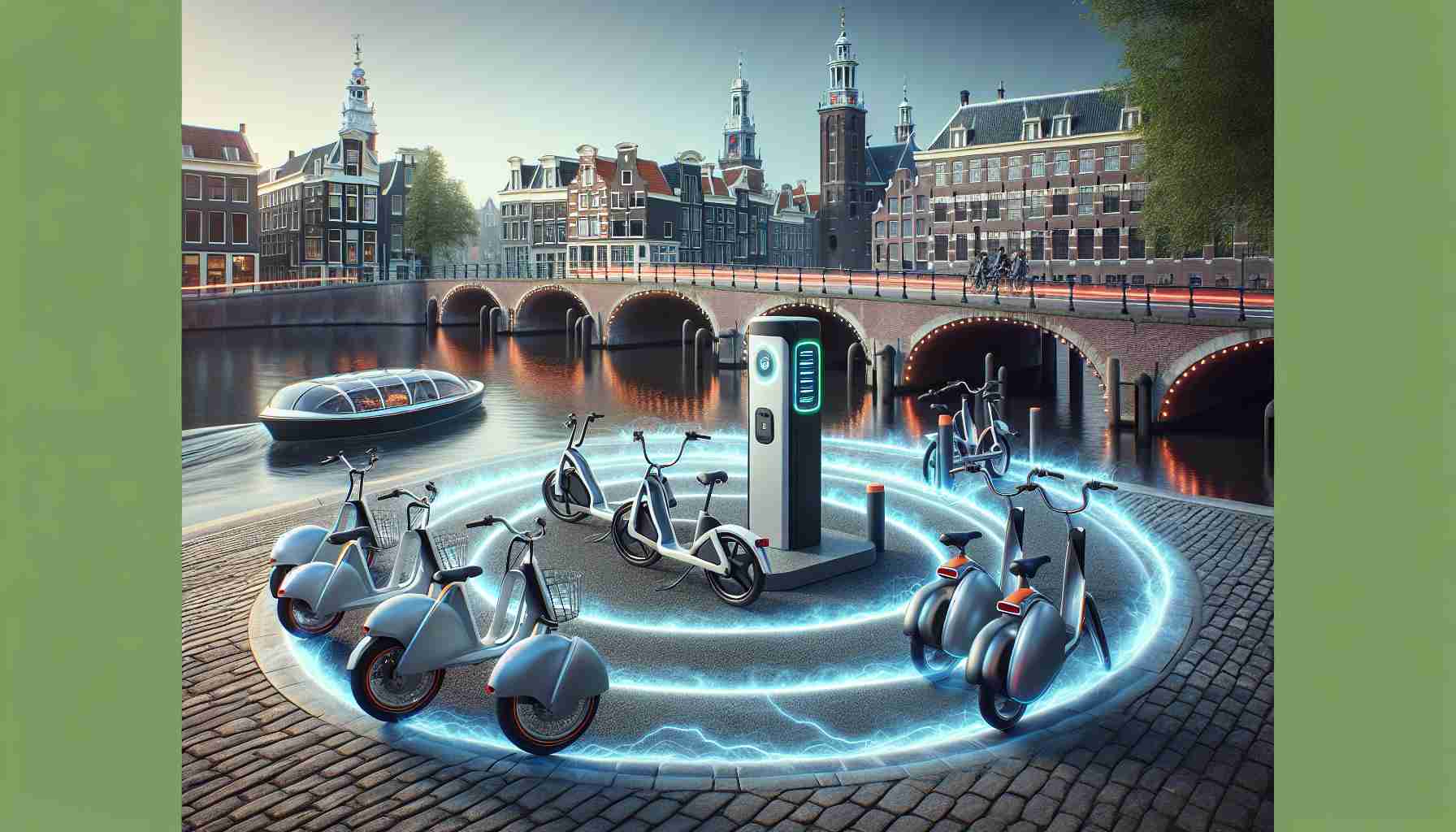A groundbreaking wireless charging solution for electric bikes and scooters has been unveiled in Amsterdam, marking a major step in the realm of sustainable transportation. Developed by re:Charge, the wireless charging station can support up to four pedal-assist e-bikes for the Capital District Transportation Authority’s (CDTA) CDPHP Cycle! bikeshare program.
The wireless charging station, located at the South Side entrance to the Mohawk Valley Gateway Overlook Pedestrian Bridge, is the first of its kind in the United States. Instead of relying on physical connectors, the system utilizes wireless power transfer technology to charge the e-bikes. Five CDPHP Cycle! bikes have been equipped with front baskets featuring wireless power receivers, making the charging process automatic when returned to the station.
Jeff Olson, co-founder of re:Charge, emphasized the company’s vision of expanding the role of electric micromobility in global transportation systems. The wireless charging stations are a step towards encouraging more individuals to embrace sustainable alternatives and choose bikes over cars. In addition to reducing carbon emissions, this initiative aims to promote equity and accessibility in transportation.
Amsterdam Mayor Michael Cinquanti hailed the introduction of the wireless charging system as a symbol of progress and a bridge between the city’s rich history and its future. The charging station represents a vital connection to key attractions like the Empire State Trail, the Erie Canal, and the Mohawk River.
By streamlining the charging process, the new system is expected to enhance efficiency and ensure that bikes are readily available for users. Currently, program staff manually replace drained batteries with fully charged ones on CDPHP Cycle! e-bikes throughout the CDTA network. This innovative wireless charging solution eliminates the need for manual battery swaps, optimizing the bikeshare program’s operations.
As cities around the world strive to reduce reliance on fossil fuels and promote sustainable transportation options, the introduction of wireless charging stations for electric bikes and scooters marks a significant advancement. Amsterdam’s pioneering initiative paves the way for other cities to explore the potential of wireless power transfer technology in revolutionizing micromobility systems.
The introduction of the wireless charging system for electric bikes and scooters in Amsterdam signifies a considerable breakthrough in sustainable transportation. This development by re:Charge has the potential to revolutionize micromobility systems worldwide.
The wireless charging station located at the Mohawk Valley Gateway Overlook Pedestrian Bridge sets a precedent as the first-of-its-kind in the United States. Instead of using physical connectors, the system employs wireless power transfer technology to charge e-bikes. By equipping the CDPHP Cycle! bikes with front baskets featuring wireless power receivers, the charging process becomes automatic when the bikes are returned to the station.
This innovative solution streamlines the charging process, leading to increased efficiency and the availability of bikes for users. Manual battery swaps, which are currently performed on CDPHP Cycle! e-bikes throughout the CDTA network, will no longer be necessary. The wireless charging system optimizes operations for the bikeshare program.
re:Charge’s vision of expanding the role of electric micromobility in global transportation systems aligns with the goals of many cities around the world. As urban areas seek to reduce dependency on fossil fuels and promote sustainable transportation alternatives, wireless charging stations offer a promising solution. Amsterdam’s pioneering initiative serves as a model for other cities to explore the potential of wireless power transfer technology in revolutionizing micromobility systems.
In addition to promoting sustainability, the wireless charging system contributes to equity and accessibility in transportation. By providing a convenient and efficient charging solution, more individuals are encouraged to embrace sustainable alternatives and choose bikes over cars. This initiative aims to create a more inclusive transportation system that benefits all residents.
Amsterdam Mayor Michael Cinquanti sees the wireless charging system as a symbol of progress, connecting the city’s rich history with its future. The charging station serves as a vital link to key attractions such as the Empire State Trail, the Erie Canal, and the Mohawk River. It enhances the connectivity and convenience of the city’s transportation infrastructure.
Looking ahead, the industry of wireless charging solutions for electric bikes and scooters is poised for growth. As more cities recognize the benefits of such systems, market forecasts predict increased demand and adoption. This advancement in wireless power transfer technology has the potential to drive the development of new products and solutions in the micromobility industry.
For more information on the industry and market forecasts, you can visit reputable sources such as Navigant Research and MarketsandMarkets. These websites provide detailed insights into the trends, challenges, and future prospects of the electric micromobility sector.






















